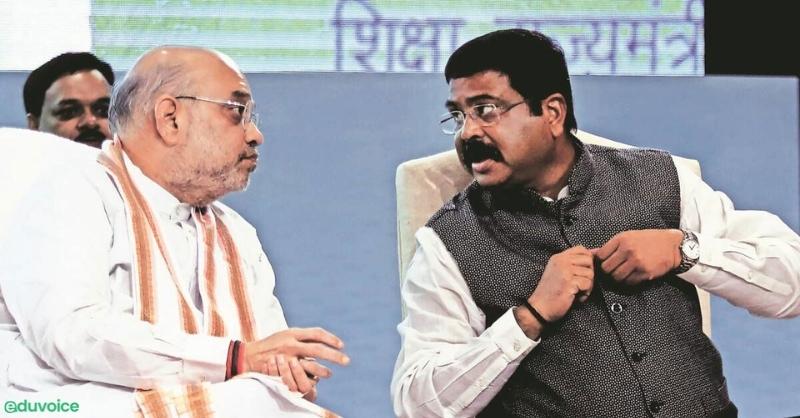Two years after the launch of the National Education Policy 2020, which proposed the setting up of a Higher Education Commission of India (HECI), the Centre is reworking a draft of the Bill that will bring to life the proposed regulatory body for college and university-level education, cutting across disciplines.
Setting up the proposed HECI is the most significant regulatory body in higher education that the NEP envisages. On Friday, at an event to celebrate the second anniversary of the policy, Union Home Minister Amit Shah said the policy will lay the foundation for transformative changes in the country.
Sources said while the ultimate objective of the HECI Bill remains to bring the activities of the University Grants Commission, AIl India Council for Technical Education, and the National Council for Teacher Education under one roof, it is being changed to incorporate the components of NEP.
The previous draft of the Bill -Higher Education Council of India (Repeal of University Grants Commission Act) Bill -was introduced in January, 2018. But it was never finalized, and within two years, the NEP, 2020, was announced.
The previous Bill provided for repealing the UGC Act, 1956, but it would not do much beyond taking over the functions of the UGC. Simply put, it would not introduce any significant changes in the regulatory framework. The government feels that the draft is too technical and lacks imagination.
A senior government official said.
In his speech at the event, which was also attended by Education Minister Dharmendra Pradhan, Shah also referred to multidisciplinary education, saying by 2030, the government plans to set up one multidisciplinary higher education institute “in every district or every alternate district in the country”.
On the occasion, the government also launched the “School Innovation Policy”, which, it said, will promote ideation, problem-solving, and entrepreneurship skills among students. It also announced that 750 virtual labs in science and mathematics will be set up over the next year.
The first NEP was introduced in 1968, the second came in 1986, while the Modi government brought the third NEP in 2020. NEP is a guiding document based on which reforms are being gradually rolled out in terms of curriculum, regulation, and language.
Pradhan said that the NEP is an “antidote to the Macaulay’s system of education which was designed to colonize our minds”.
Shah also laid emphasis on the need to impart even higher education in Indian languages. “Be it medical education, legal or technical, when we don’t teach in Indian languages, then we utilize not more than 5 percent of the country’s capabilities. Because mother tongue is the medium in the case of primary education of 95 percent children,” Shah said.
For More Such Articles, News Update, Events, and Many More Click Here






